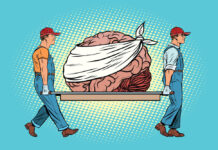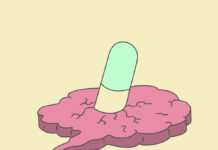The Drug-based Approach to Mental Illness Has Failed
Science writer John Horgan interviews Robert Whitaker about his book Anatomy of an Epidemic, the long-term impact of psychiatric drugs, and promising alternatives to...
Risks of Prescribing Psychiatric Drugs to Veterans
I wrote this article because of continued inaction to inform veterans and all Americans of the risk profiles of the drugs they’re prescribed.
Billions of Dollars Later, Neuroscientists Still Struggling to Address Mental Health Crisis
From Vox: It’s possible that some of the best mental health care lies outside Western psychiatry altogether.
Gigantic Hoax on Danish National TV: “Patients with an ADHD Diagnosis Die Five Years...
Danish TV issues a correction after learning that this purported study doesn't exist.
Scores of Papers by Top NIH Neuroscientist Eliezer Masliah Fall Under Suspicion
From Science: The questionable data implicates many studies that underpin the development and testing of experimental Alzheimer's and Parkinson's drugs.
Preventing Suicide Among Older Adults
In an ideal world, the goal would be to have interconnected, trauma-informed, “helping” communities to prevent suicide in older adults.
Study Finds Over 25% of Antidepressant Prescriptions Given to High-Risk, Long-Term Users
A new article published in BMC Medicine finds that antidepressant use in two Scottish regions increased 27% between 2012 and 2019. The current work,...
Capitalism Is Driven by Mental Illness
Psychedelics are useful not for the hallucinations they provide, but for the hallucinations they dispel.
SAFE: Survivors And Families Empowered—An Update
We hope to combat the increasing reliance on force, too often used with the justification “for your own good.”
What Helped and What Hindered My Recovery from PSSD and Protracted Withdrawal from Antidepressants?
To recover from protracted withdrawal, I did everything I could to survive the process and help my body and mind heal.
From Freud to Fanon: How Daniel Gaztambide is Redefining Psychoanalytic Practice
In this interview, Daniel Gaztambide discusses how decolonial perspectives can transform psychoanalytic practice.
Is Mental Health a Choice—and Can Understanding Help Us Heal?
There’s a pattern and a purpose to what the mind does. You can’t change it, you have to understand it.
Antidepressants Linked to Lasting Sexual Dysfunction, Study Finds
New research highlights the challenges in quantifying the prevalence of Post-SSRI Sexual Dysfunction (PSSD), a condition that continues to affect patients long after they stop taking antidepressants.
Right-Wing or Left-Wing: Who Really Owns the Critique of Over-Medicalisation?
Left-wing critique has always challenged powerful vested interests that prefer not to be disturbed.
Involuntary Care Doesn’t Work. What BC Should Do Instead
From The Tyee: An evidence-based approach clearly shows that the reliance on detention, force and coercion over the past two decades has not led to better outcomes.
Researchers Accuse Lancet Article and British Psychiatrists of Minimising Antidepressants’ Withdrawal Effects
A response to a seriously flawed review.
Assessing Community Mental Health Programs in India: Insights from Task-Shifting in Kerala
The MISA news team provides insight into community mental health initiatives in India.
How to Be a Happy, Successful Incurable Schizophrenic
If you are a young schizophrenic, I encourage you to accept the challenge of leading a happy, productive, meaningful life.
ADHD Drugs Linked to Psychosis and Mania
In one analysis, those on a high dose of prescription amphetamines were more than 13 times more likely to develop psychosis/mania.
Faith Healing in India: An Ancient Way of Tending to Madness
In contrast to the colonial legacy of medical psychiatry in India, indigenous and faith healing methods emphasize the interconnectedness of the mind, body, and spirit, using rituals, storytelling, and communal support to create a holistic healing environment.
The Long-Disputed Science of Twin Studies
Twin studies and heritability estimates are used in support of biological determinism and in defense of the global inequality status quo.
STAR*D: The Harms of Orchestrated Psychiatric Fraud
STAR*D’s results are too bitter a pill for psychiatric leaders to swallow, so they have chosen to become a rogue medical specialty.
Antidepressant Withdrawal: A Psychiatrist’s 30-Year Challenge to Conventional Wisdom
For thirty years, Dr. Giovanni Fava has sounded the alarm on the long-term effects of antidepressants and the risks of withdrawal, pushing back against pharmaceutical narratives.
Human Suffering as Numbers and Graphs: The Problem with Measuring Outcomes in Therapy
Outcome monitoring is a product of bureaucratic healthcare: Human suffering reduced to efficiency optimization.
Antidepressant Withdrawal Commonly Misdiagnosed as “Mental Illness”
A new study reveals that more than two-thirds of patients experiencing antidepressant withdrawal were misdiagnosed with psychiatric disorders.

































